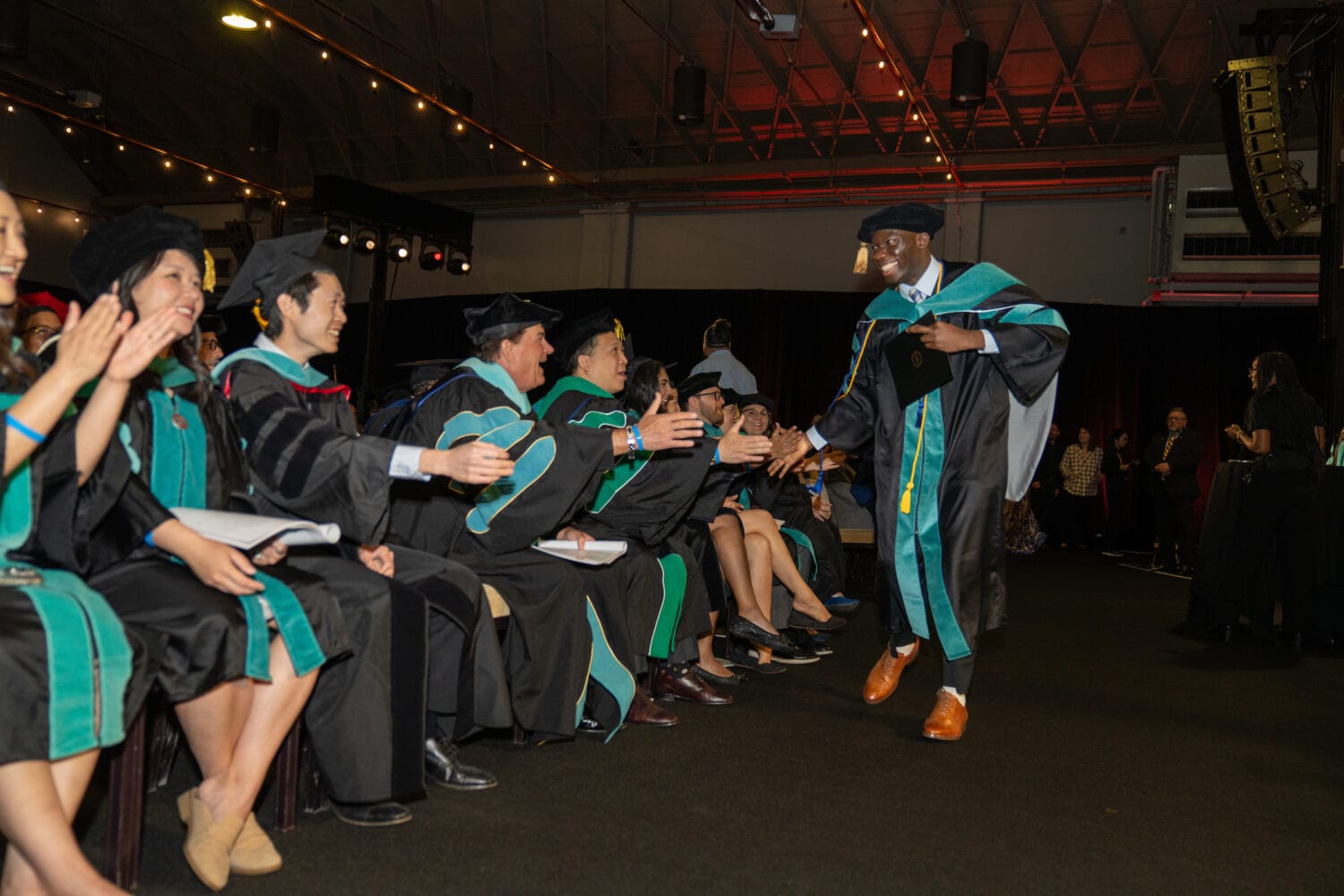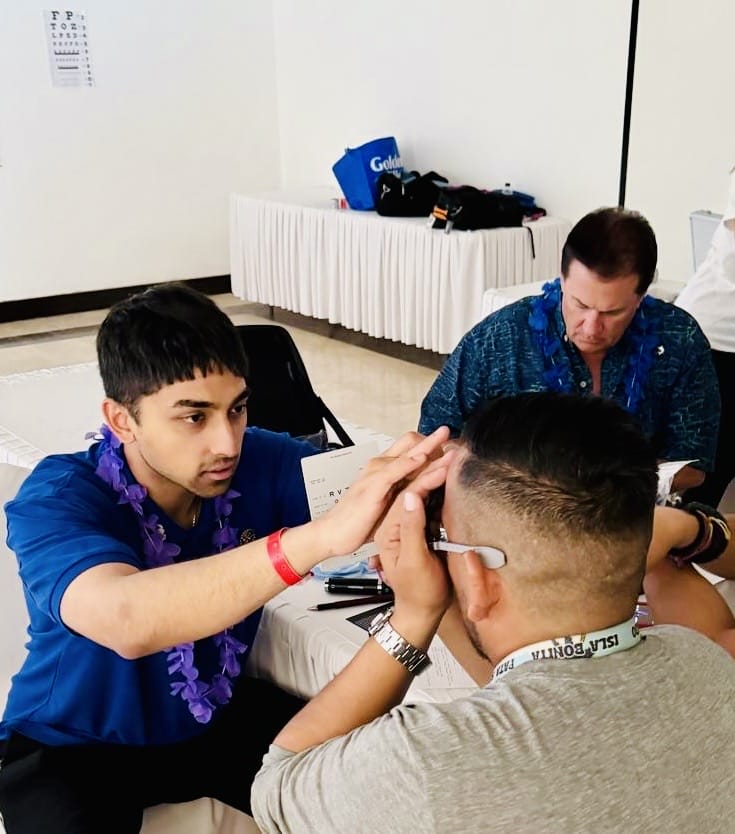Western University of Health Sciences receives NIH funding to test vision-enhancing video game
Western University of Health Sciences is collaborating with UC Riverside and UCLA to test a video game designed to improve vision.
College of Optometry Associate Professor Pinakin Davey, OD, PhD, FAAO, received a National Institutes of Health (NIH) grant subcontract in collaboration with UC Riverside and UCLA. WesternU will receive about $100,000 of the $1.7 million grant.
Dr. Davey is the principal investigator of the study at WesternU, “Integrating Perceptual Learning Approaches Into Effective Therapies for Low Vision Population.” The lead principal investigator for the study is Aaron Seitz, PhD, of UC Riverside and Stacy Pineles, MD, is co-PI from UCLA’s Jules Stein Eye Institute. Jack Greenan and Jenni Deveau are research associates.
The study will evaluate the benefits of integrative therapies on the functional vision of individuals with age-related macular degeneration, glaucoma, post-cataract surgery, or myopia.
Participants will play a video game designed to enhance vision. Each training session will last about 25 minutes, and will be conducted in the participant’s home. If they do not have a tablet or computer suitable to play the game, one will be provided to them for the duration of the study. They will also be examined at WesternU’s Patient Care Center.
To volunteer for the study or to learn more, call 909-469-8473 or email pdavey@westernu.edu.
The video game tests their vision and allows the researchers to monitor how the patients are doing from long distance.
“It’s going to enhance patients’ compliance of doing such testing and exercises, which are quite inconvenient for patients to come into the office and do,” Davey said. “These (devices) are going to be very instrumental in how health care is delivered and administered in future years.”
There is no cure for glaucoma and age-related macular degeneration, so utilizing residual vision is a welcome step in the right direction, Davey said.
“This video game is going to enhance and teach patients to utilize their residual vision,” he said.
This collaboration is Davey’s first with UC Riverside and UCLA. Other joint grant submissions are in the works, he said.
“This is going to enhance our future ability to not only perform cutting-edge research, but to secure more federal dollars, and ultimately further enhance patient care,” Davey said.



